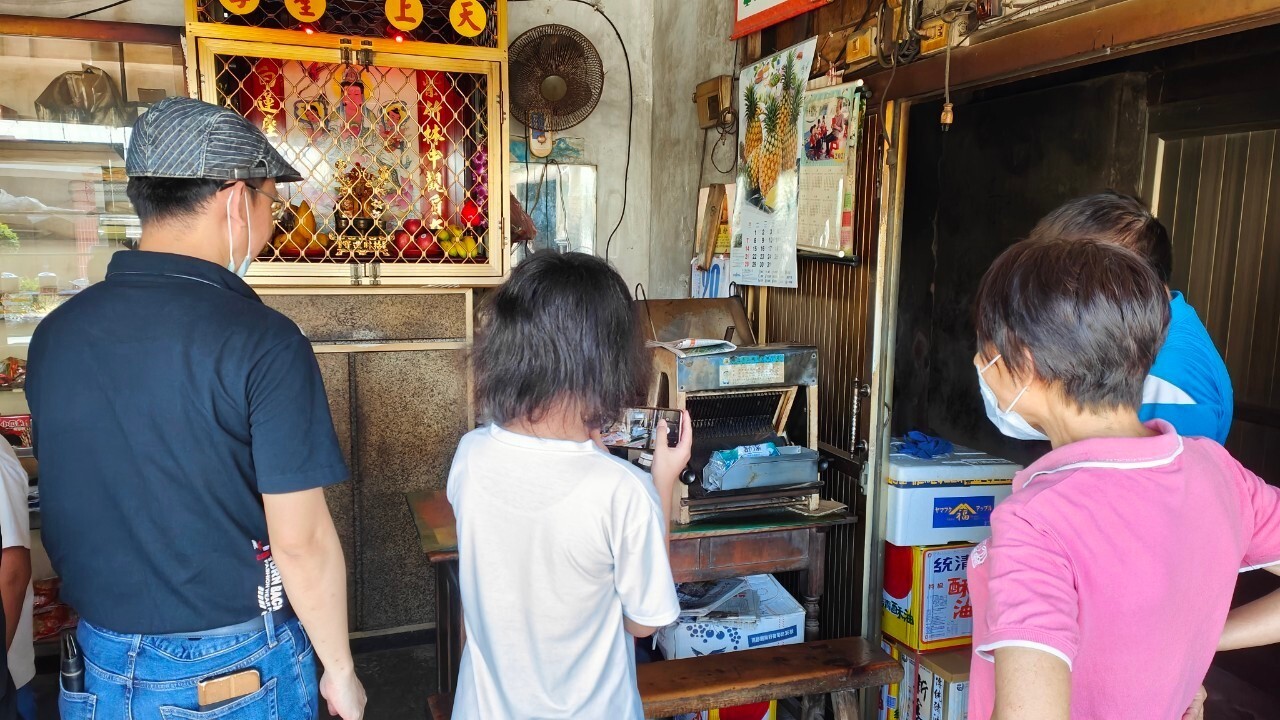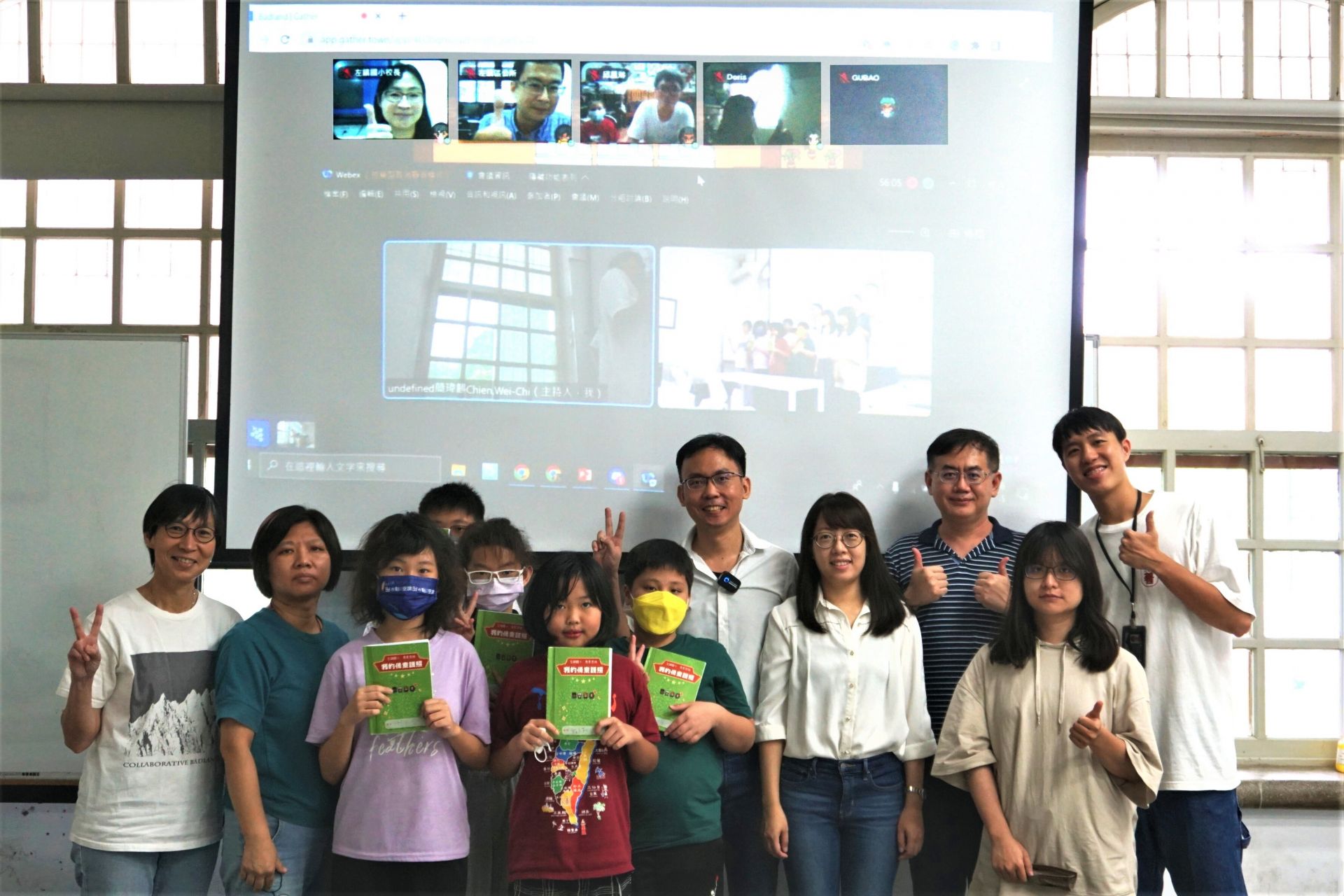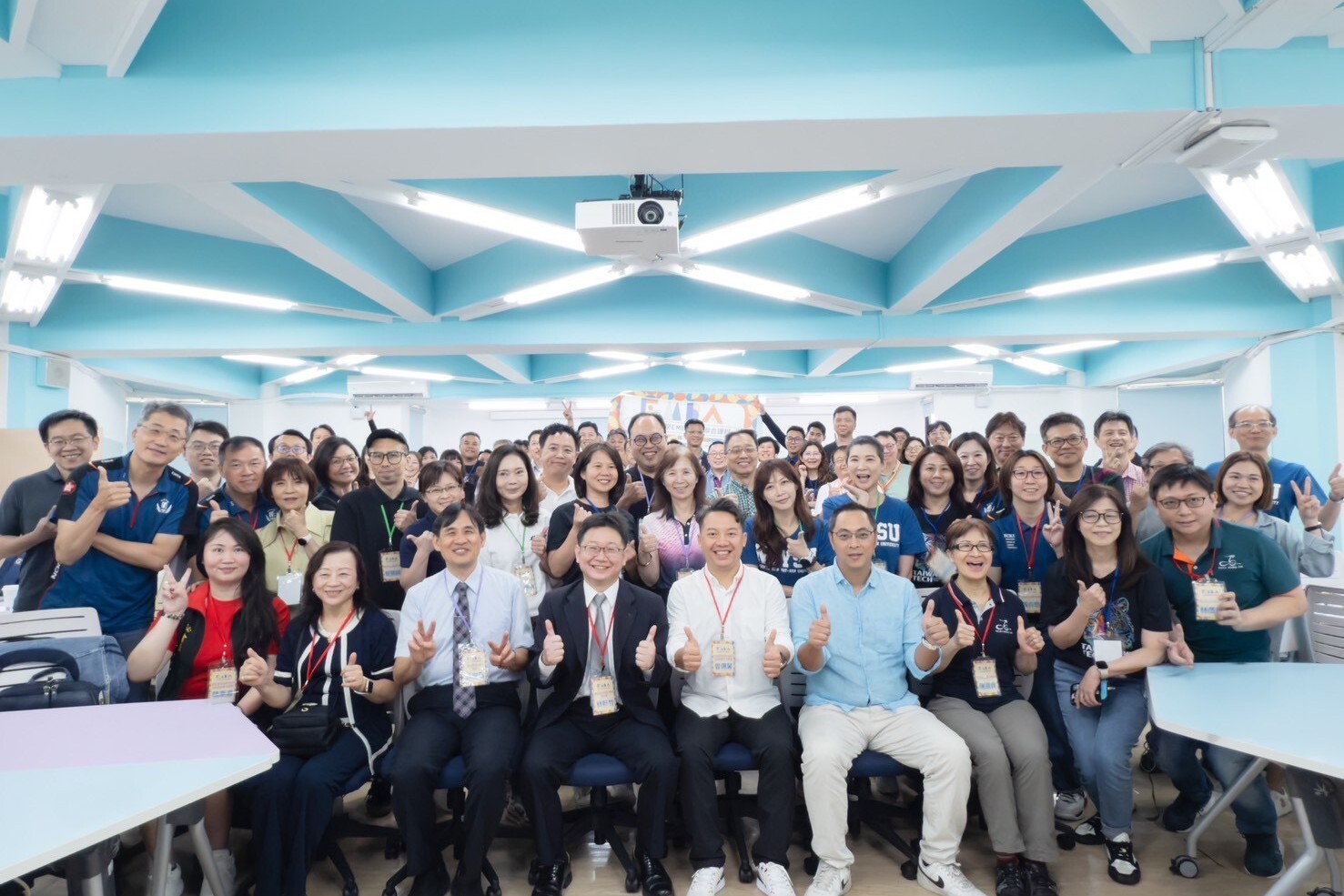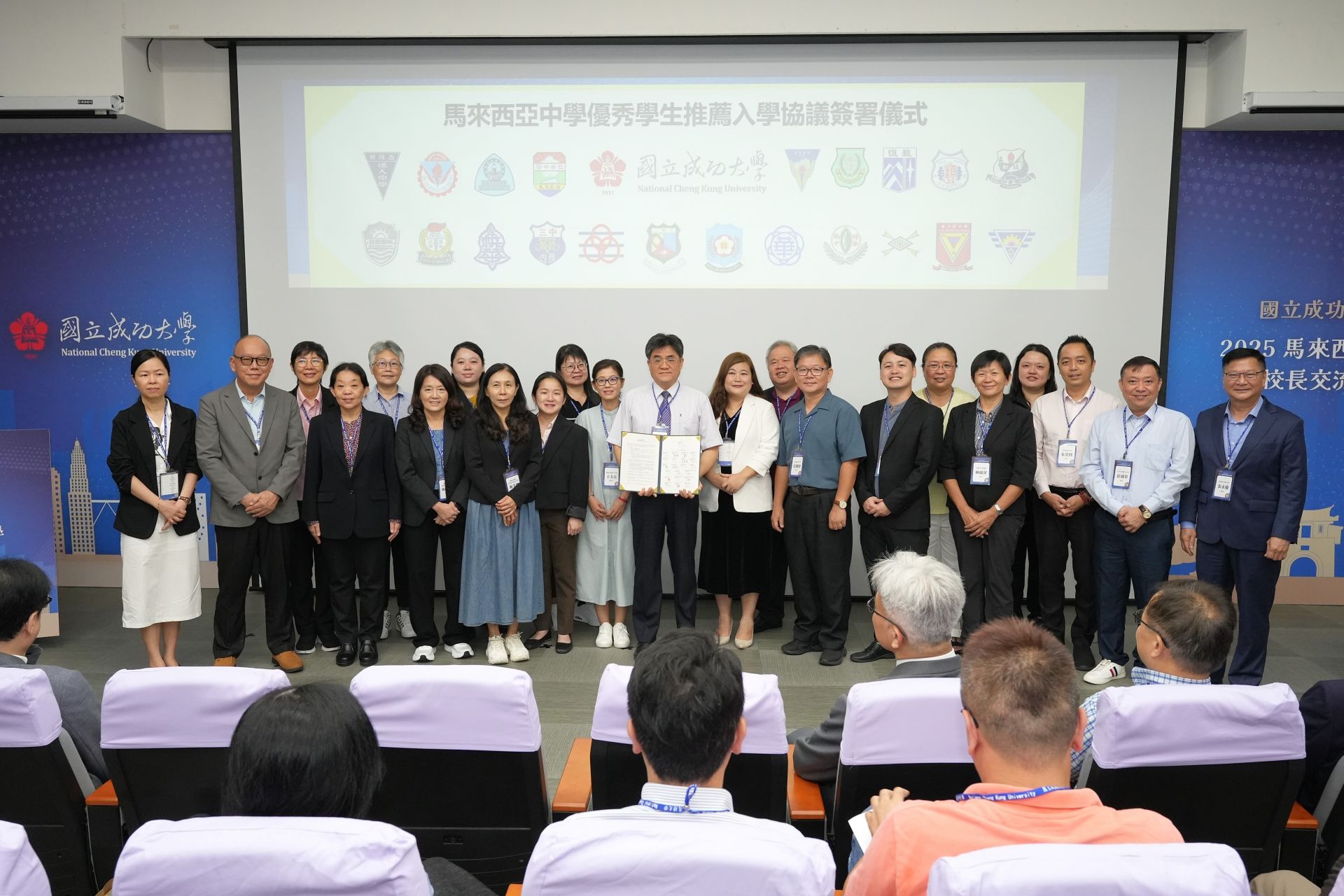SDG4
The Metaverse in Zuozhen: NCKU & Zuozhen Elementary School Exhibit "Local Digital Revitalization" Course Results
The challenge of rural depopulation and the imminent threat of declining local school enrollments due to population migration are issues of common concern in rural areas. Developing distinctive schools to address the possibility of closures is a crucial topic for the upland communities. In order to tackle this problem, National Cheng Kung University (NCKU) initiated a collaboration with Zuozhen Elementary School on the "Local Digital Revitalization" Undergraduate Student Research (USR) teaching project from the 111th academic year. Today (15th), the results of this semester's project, "Metaverse in Zuozhen," were presented at the NCKU Grand Hall, showcasing the learning outcomes of elementary school students in science and technology courses.
The presentation was conducted in a hybrid format, combining both online and offline elements. Principal Jing-fang Yang of Zuozhen Elementary School participated online and expressed gratitude for NCKU's continuous concern for rural development and provision of excellent learning opportunities for students. She was impressed by the creativity of the students' work and hoped that the curriculum of local digital revitalization could continue, offering a transformative opportunity for the region. She also expressed hope that through collaboration with NCKU and the district office, more talents in technology could be cultivated, bringing technological vitality to Zuozhen. Mr. Zhi-liang Zhuang, Director of Agriculture and Construction Division of Zuozhen District Office, also praised the NCKU team during the online session. He appreciated the efforts to guide children in creating virtual characters online, allowing the world to see the beauty of Zuozhen.
Mr. Hong-wen Wang, head of Zuozhen Elementary School, who led the children to participate in physical activities at the NCKU campus, expressed gratitude to the collaborating team. He stated that with NCKU's assistance, children were able to establish Zuozhen's old street in the metaverse. In the future, people can visit Zuozhen in person or explore it online, promoting tourism development both online and offline.
In the first semester of the 111th academic year, Associate Professor Hsiu-Tzu Chang from the Department of Urban Planning led a team of graduate students to collaborate with the technology director of Zuozhen Elementary School, who is also an alumnus of NCKU's Department of Transportation Management, Mr. Hong-wen Wang, to guide fourth-grade elementary school students in special teaching activities. Starting from understanding Zuozhen's old street, students were taught to use Google My Map to record and narrate local stories. This method upgraded primary school students from traditional outdoor teaching to constructing digital maps of their hometowns, allowing them to gain a deeper understanding through digital applications. In the second semester, Assistant Professor Wei-Chi Chien from the Department of Industrial Design continued to stimulate the creativity of primary school students in digital technology, while also infusing humanistic care and cultural sustainability into their learning projects.
Assistant Professor Wei-Chi Chien and his team of graduate students first guided the primary school students to use the online virtual social platform gather.town to create the "Pixel Upland." They then transformed the shops, station ruins, ancient houses, important heritage, and stories of Zuozhen's old street into elements, creating their own version of Zuozhen's old street in the "Pixel Upland." Throughout the process, the students not only learned how to collect materials, design scripts, and use objects to tell stories but also had to overcome the challenges of using digital drawing tools entirely in English to create their works, integrating their creations with the metaverse to present innovative technological narrative works.
Assistant Professor Wei-Chi Chien stated that the results presentation of the "Local Digital Revitalization" Undergraduate Student Research (USR) project in the first and second semesters was particularly thoughtful. The innovative approach created opportunities for resonance with the local community. For example, the first semester's project presentation used the renovated old houses in Zuozhen's old street as a stage for children to perform, allowing the elderly in the area to once again feel the vitality of the old street. This semester, Zuozhen Elementary School teachers and students were invited to the NCKU campus, bridging the gap between the university and rural areas. Through online presentations, information was shared with those interested in rural areas, aiming to enhance children's digital technology capabilities while also boosting their sense of identity and confidence in their hometowns and themselves.
The NCKU Rural Collaboration USR project aims to achieve three goals: new experiences, new industries, and new information, leveraging the advantages of design, technology, and information fields. It collaborates closely with partners in the southwest rural areas, connecting resources from industry, government, academia, and aiming to create new possibilities for industry development in remote mountainous areas. It seeks to create a learning ecosystem that integrates universities with local communities, cultivating social responsibility among university students and providing practical experience on the ground. The current collaborating rural schools include Zuozhen Elementary School and Guangrong Elementary School in Tainan's Zuozhen Township, as well as Muzha Elementary School in Neimen District, Kaohsiung. The project hopes to combine NCKU's technological and design capabilities with local teachers and students to explore new possibilities for local revitalization.
The presentation was conducted in a hybrid format, combining both online and offline elements. Principal Jing-fang Yang of Zuozhen Elementary School participated online and expressed gratitude for NCKU's continuous concern for rural development and provision of excellent learning opportunities for students. She was impressed by the creativity of the students' work and hoped that the curriculum of local digital revitalization could continue, offering a transformative opportunity for the region. She also expressed hope that through collaboration with NCKU and the district office, more talents in technology could be cultivated, bringing technological vitality to Zuozhen. Mr. Zhi-liang Zhuang, Director of Agriculture and Construction Division of Zuozhen District Office, also praised the NCKU team during the online session. He appreciated the efforts to guide children in creating virtual characters online, allowing the world to see the beauty of Zuozhen.
Mr. Hong-wen Wang, head of Zuozhen Elementary School, who led the children to participate in physical activities at the NCKU campus, expressed gratitude to the collaborating team. He stated that with NCKU's assistance, children were able to establish Zuozhen's old street in the metaverse. In the future, people can visit Zuozhen in person or explore it online, promoting tourism development both online and offline.
In the first semester of the 111th academic year, Associate Professor Hsiu-Tzu Chang from the Department of Urban Planning led a team of graduate students to collaborate with the technology director of Zuozhen Elementary School, who is also an alumnus of NCKU's Department of Transportation Management, Mr. Hong-wen Wang, to guide fourth-grade elementary school students in special teaching activities. Starting from understanding Zuozhen's old street, students were taught to use Google My Map to record and narrate local stories. This method upgraded primary school students from traditional outdoor teaching to constructing digital maps of their hometowns, allowing them to gain a deeper understanding through digital applications. In the second semester, Assistant Professor Wei-Chi Chien from the Department of Industrial Design continued to stimulate the creativity of primary school students in digital technology, while also infusing humanistic care and cultural sustainability into their learning projects.
Assistant Professor Wei-Chi Chien and his team of graduate students first guided the primary school students to use the online virtual social platform gather.town to create the "Pixel Upland." They then transformed the shops, station ruins, ancient houses, important heritage, and stories of Zuozhen's old street into elements, creating their own version of Zuozhen's old street in the "Pixel Upland." Throughout the process, the students not only learned how to collect materials, design scripts, and use objects to tell stories but also had to overcome the challenges of using digital drawing tools entirely in English to create their works, integrating their creations with the metaverse to present innovative technological narrative works.
Assistant Professor Wei-Chi Chien stated that the results presentation of the "Local Digital Revitalization" Undergraduate Student Research (USR) project in the first and second semesters was particularly thoughtful. The innovative approach created opportunities for resonance with the local community. For example, the first semester's project presentation used the renovated old houses in Zuozhen's old street as a stage for children to perform, allowing the elderly in the area to once again feel the vitality of the old street. This semester, Zuozhen Elementary School teachers and students were invited to the NCKU campus, bridging the gap between the university and rural areas. Through online presentations, information was shared with those interested in rural areas, aiming to enhance children's digital technology capabilities while also boosting their sense of identity and confidence in their hometowns and themselves.
The NCKU Rural Collaboration USR project aims to achieve three goals: new experiences, new industries, and new information, leveraging the advantages of design, technology, and information fields. It collaborates closely with partners in the southwest rural areas, connecting resources from industry, government, academia, and aiming to create new possibilities for industry development in remote mountainous areas. It seeks to create a learning ecosystem that integrates universities with local communities, cultivating social responsibility among university students and providing practical experience on the ground. The current collaborating rural schools include Zuozhen Elementary School and Guangrong Elementary School in Tainan's Zuozhen Township, as well as Muzha Elementary School in Neimen District, Kaohsiung. The project hopes to combine NCKU's technological and design capabilities with local teachers and students to explore new possibilities for local revitalization.

The presentation of results is conducted both online and offline, aiming to showcase the beauty of Zuozhen through the project "The Metaverse in Zuozhen".

Assistant Professor Wei-Chi Chien from the NCKU Industrial Design Department, along with a team of graduate students, led elementary school students to use an online virtual social platform to create "The Metaverse in Zuozhen" this semester.

Students from Zuozhen Elementary School documented materials from a local bakery on the old street. Facilitated by Principal Wang Guanwen from Zuozhen Elementary School.























